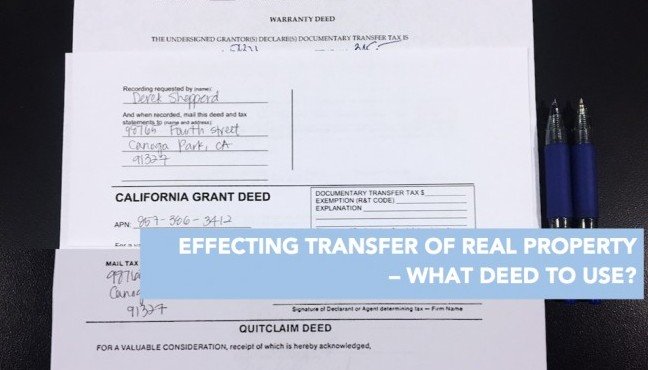Updated on August 28, 2023
Key Takeaways
- A deed is a written instrument used for transferring the title to real property.
- Different types of deeds serve various purposes in property transfers
- Grant Deed
- Commonly used in California for property transfers.
- Implies that the grantor hasn’t transferred the property to anyone else.
- Asserts that the property is free from grantor-created encumbrances.
- Warranty Deed
- Similar to a grant deed but comes with additional promises.
- Provides an express warranty of title and quiet possession to the grantee.
- The grantor agrees to defend against unlawful claims on the property.
- Less common due to the prevalence of title insurance.
- Quitclaim Deed
- Transfers the grantor’s rights, title, and interest in the property.
- No implied covenants or promises about the title.
In the realm of real estate transactions, a California special warranty deed emerges as a crucial legal instrument. it enables the smooth transfer of property ownership while offering robust safeguards against potential claims and liens that may have arisen during the grantor’s ownership period. With this unique type of property deed, the buyer, or grantee, gains valuable assurance as they embark on acquiring real property.
However, to ensure a seamless transfer of real property, it becomes imperative for the grantee to conduct a comprehensive title search, unveiling any lingering claims before finalizing the transaction. In this article, we will explore the intricacies of the California special warranty deed, shedding light on its significance and the steps involved in successfully transferring property title under its protective umbrella. So, let’s delve into the different types of deeds and unlock the essence of this vital legal process within the California real estate landscape.
The purpose of the deed is to used when transferring property or title. Below are four types of deeds that can be used to transfer title, each of them serving for different purposes:
What is a Deed?
What is a Grant Deed?
The “grant deed” is the document most commonly used to transfer title to real property in California. When a grantor executes a grant deed, he or she impliedly promises:
- That before the grantor executed the deed, he or she has not conveyed the same estate in the subject property to any other person than the grantee; and
- Such estate in subject property is free from any encumbrance created by the grantor.
What is a Warranty Deed used for?
The “warranty deed” is like a grant deed, except that it contains additional promises. Specifically, a warranty deed expressly warrants the title to the property and the quiet possession of the property the grantee. Therefore, by executing a warranty deed, a grantor is agreeing to defend the property against any unlawful claim. Because of the prevalence of title insurance, warranty deeds are infrequently used in California.
What is a Quitclaim Deed?
The third type of deed is a “quitclaim deed” A quitclaim deed transfers to the grantee whatever right, title, and interest the grantor had in the property at the time he or she executed the deed. Unlike a grant deed or a warranty deed, a quitclaim deed does not contain any implied covenants or promises.
At Schorr Law, Our real estate lawyers in Los Angeles have experience with a variety of real estate matters, including property ownership transfers and deeds. To inquire about a free 30-minute consultation, you can call us directly at (310) 954-1877, text us at (310) 706-2265, or send us a message.
